After three weeks abroad, I'm back home in Chicago. During this life-changing experience, I took an intensive two-week course in German bread baking at the Akademie Deutsches Bäckerhandwerk in Weinheim. I'm proud to announce that I received my Certificate in German Bread Baking. Cue "Pomp and Circumstance."
But I didn't just study bread baking. I connected with bakers from Germany and across the globe. When I wasn't in Weinheim, I traveled, ate, sipped wine, visited markets, and hit as many bakeries as possible. I visited three countries, 18+ bakeries, 16+ wineries, and 21+ cities/towns/villages in Germany, Switzerland, and Alsace, France. Yes, I'm tired, but the blissfully happy kind of tired.
I returned from this adventure with a deeper love for German baking, food, and wine than I thought possible. Buckle up for a series of posts on these subjects, because they don't get nearly enough love in the food media ecosystem.
German Bread Rules
Before I get into what I learned about German baking, I'd like to highlight a few things that set it apart from baking in other cultures. Germans take their bread so seriously that it comes with its own set of rules.
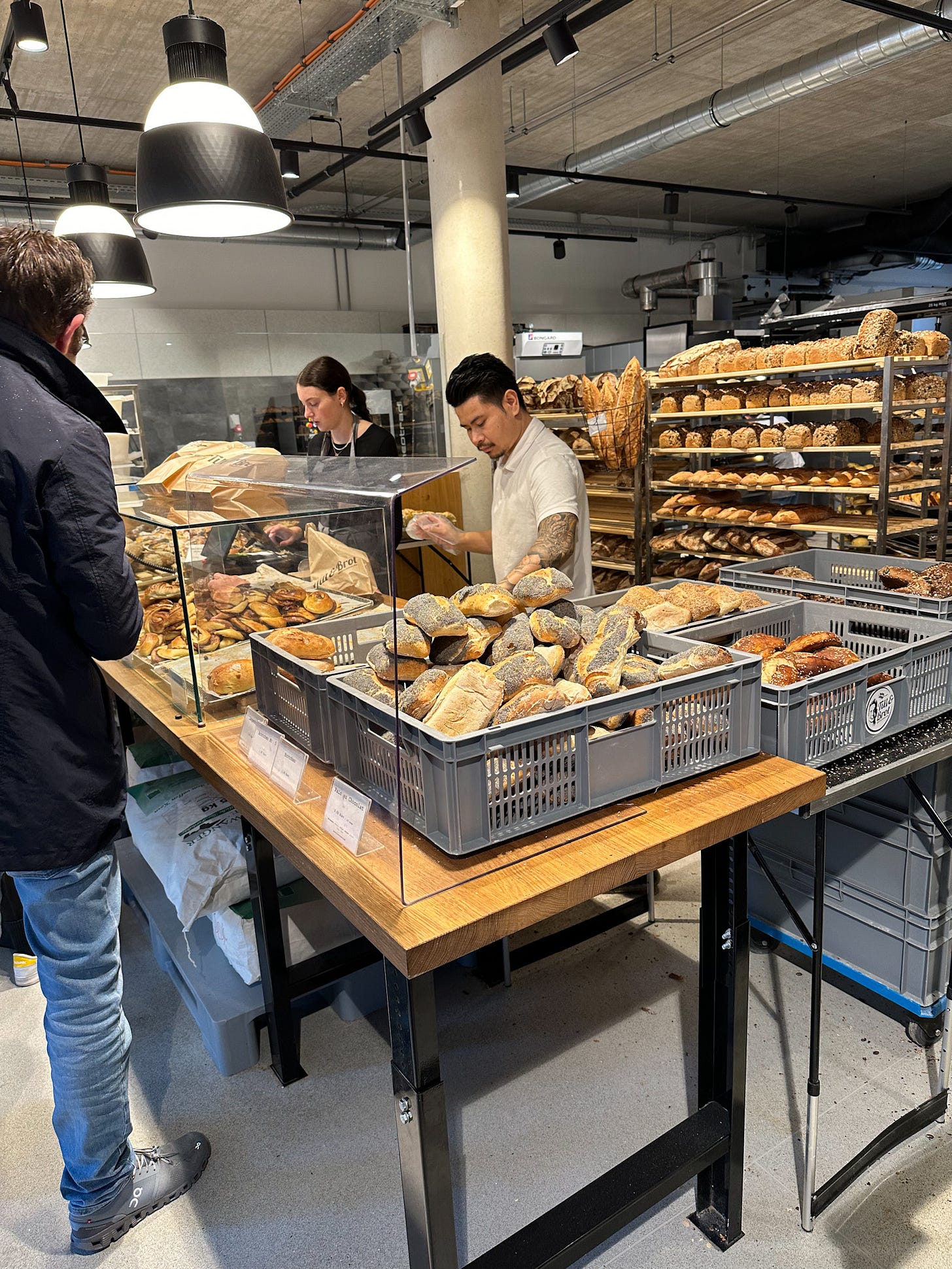
When most Americans think of rye bread, they think of soft "deli" rye bread flavored with caraway seeds. That bread could not be called rye bread in Germany, because most deli-style rye breads in America only contain about 20% rye flour. It would actually have to be called a Weizenmischbrot or wheat-mixed bread
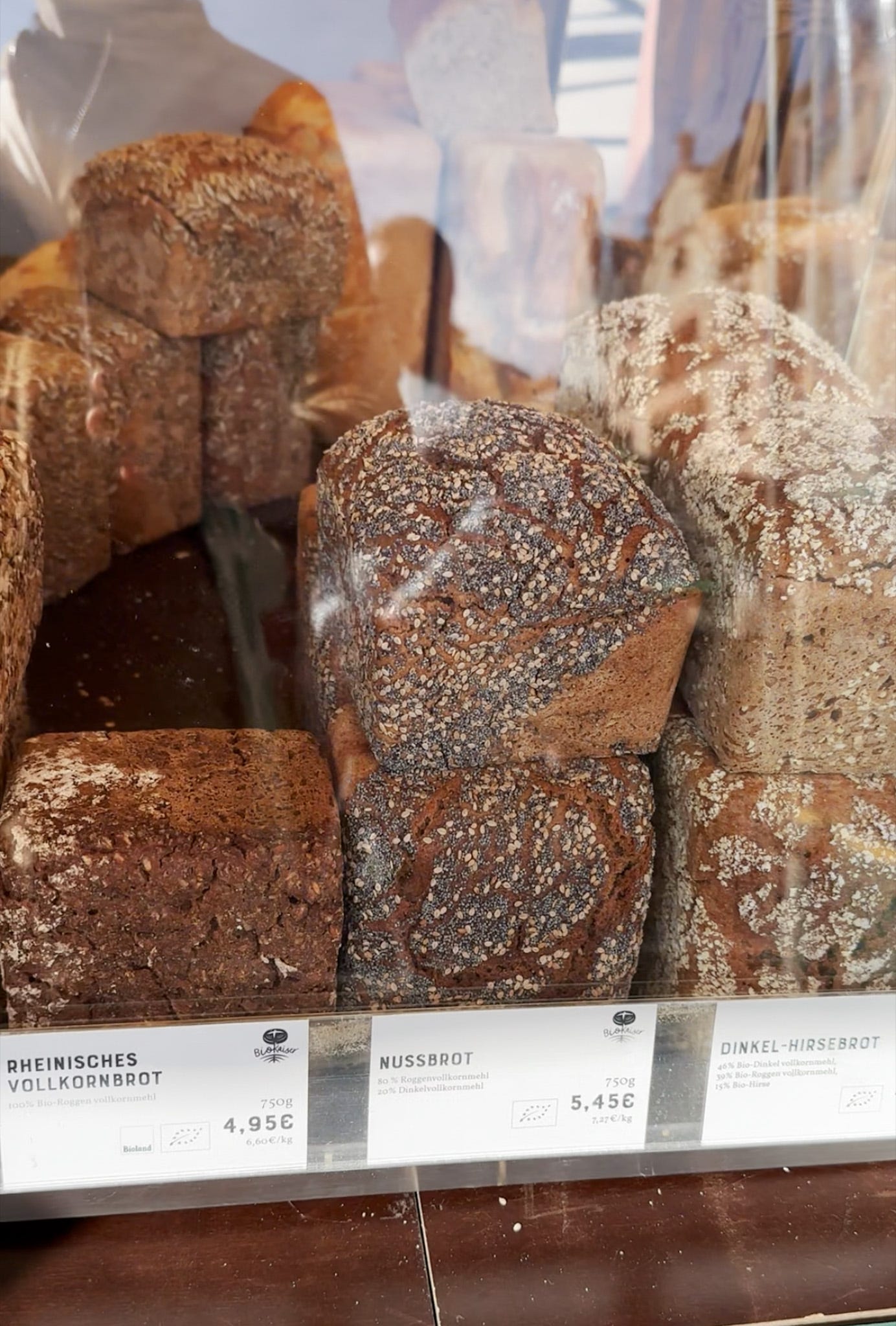
Germans love to regulate things. While it may seem annoying for business owners, it ensures customers know what they're getting. Most of the regulations ensure that the bread's name reflects what's inside. I think all these rules express the importance of bread in German culture.
A few of the rules:
Rye bread (Roggenbrot) must contain at least 90% rye. The same goes for wheat bread (Weizenbrot), spelt bread (Dinkelbrot), etc.
Mixed breads (Mischbrot), which make up a large portion of bread in German bakeries, also have rules. Rye-mixed bread (Roggenmischbrot) must contain more than 50% rye, and the remainder can be other grains. The same goes for wheat-mixed bread (Weizenmischbrot), spelt-mixed bread (Dinkelmischbrot), etc.
A bread called whole grain bread (Vollkornbrot) must contain at least 90% whole grains.
If bread is called three-grain or five-grain, it must contain at least 5% of each grain.
Sunflower seed bread (or other nuts or seeds) must include at least 8% of those seeds in the loaf (as a baker’s percentage). You get the picture.
Even the term sourdough (Sauerteig) is regulated. If a bread is called sourdough, all of the acid must come from natural sourdough. (However, commercial yeast can be added to leaven the bread.)
Here’s the most recent set of German bread regulations (auf Deutsch).
Important note: Rye does not equal caraway. Caraway is a spice that looks like fennel seeds or cumin seeds and flavors many American deli rye loaves. That's not the flavor of rye flour. I know so many people who claim not to like rye bread when they actually detest caraway. So, if you think that you dislike rye bread, give it another chance and find a rye bread without any caraway. Myself, I don't mind caraway.
Why does this matter? First, this background will help you understand some of the posts that follow. As I mentioned at the top, American Deli-style rye bread is not made with mostly rye flour. As a consumer, I like to know what I'm getting. As a lover of real rye bread, I like my rye bread to be made mostly of rye flour.
Another important German bread rule: To open a bakery, you must be (or employ) a certified master baker. Before enrolling in a master baker program, you must go through an apprenticeship program and have a certain amount of experience and education. The German Bakers' Guild regulates all of this. The rigorous education ensures that German bread and the national bread culture maintain their unrivaled excellence.
But don't let all of these rules make you think that German bread is boring and over-regulated. Quite the opposite. German bakers have incredible skill, a vast repertoire, and creativity to boot—yet another reason that German bread rules.
Happy Baking,
Martin





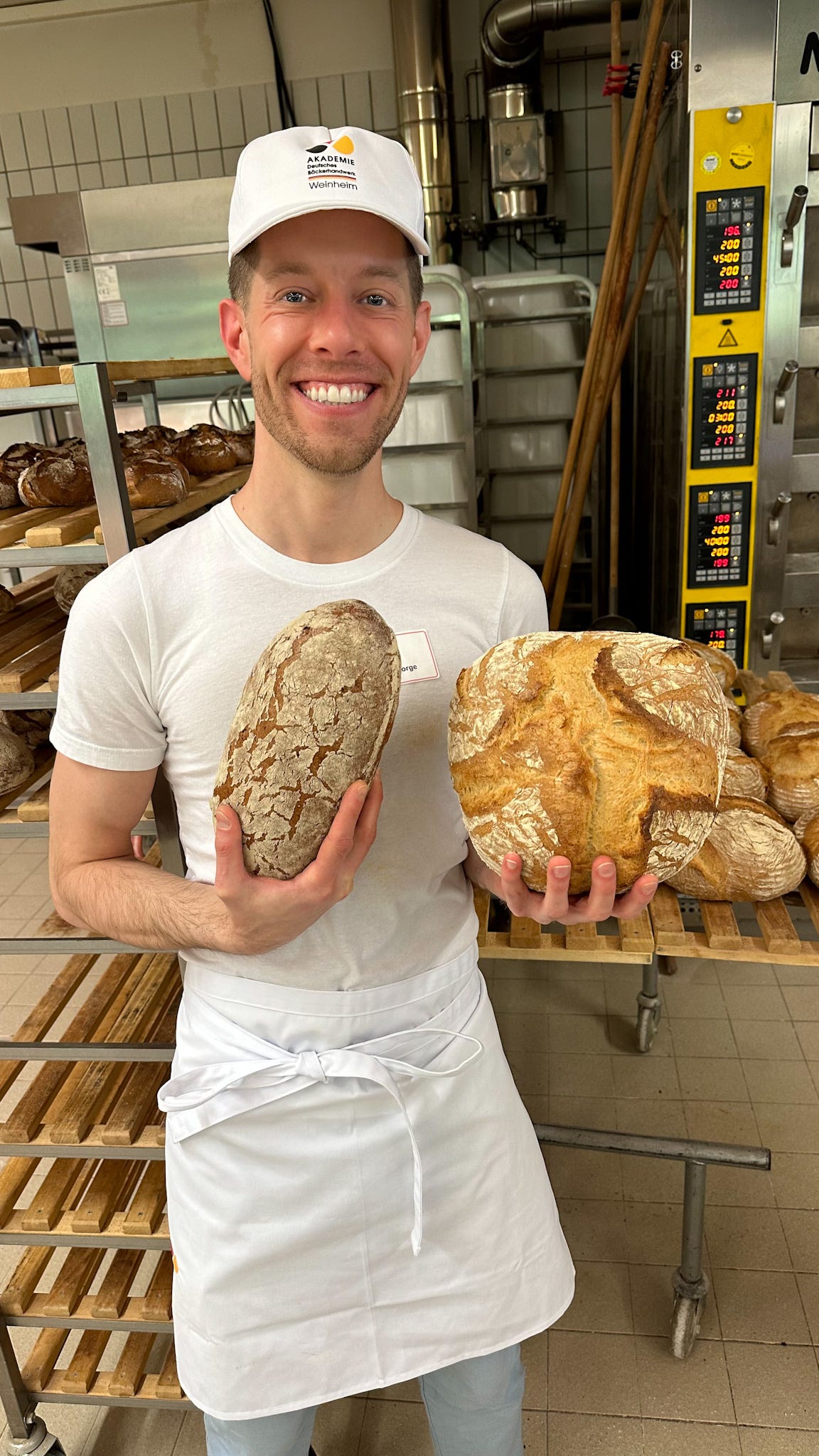
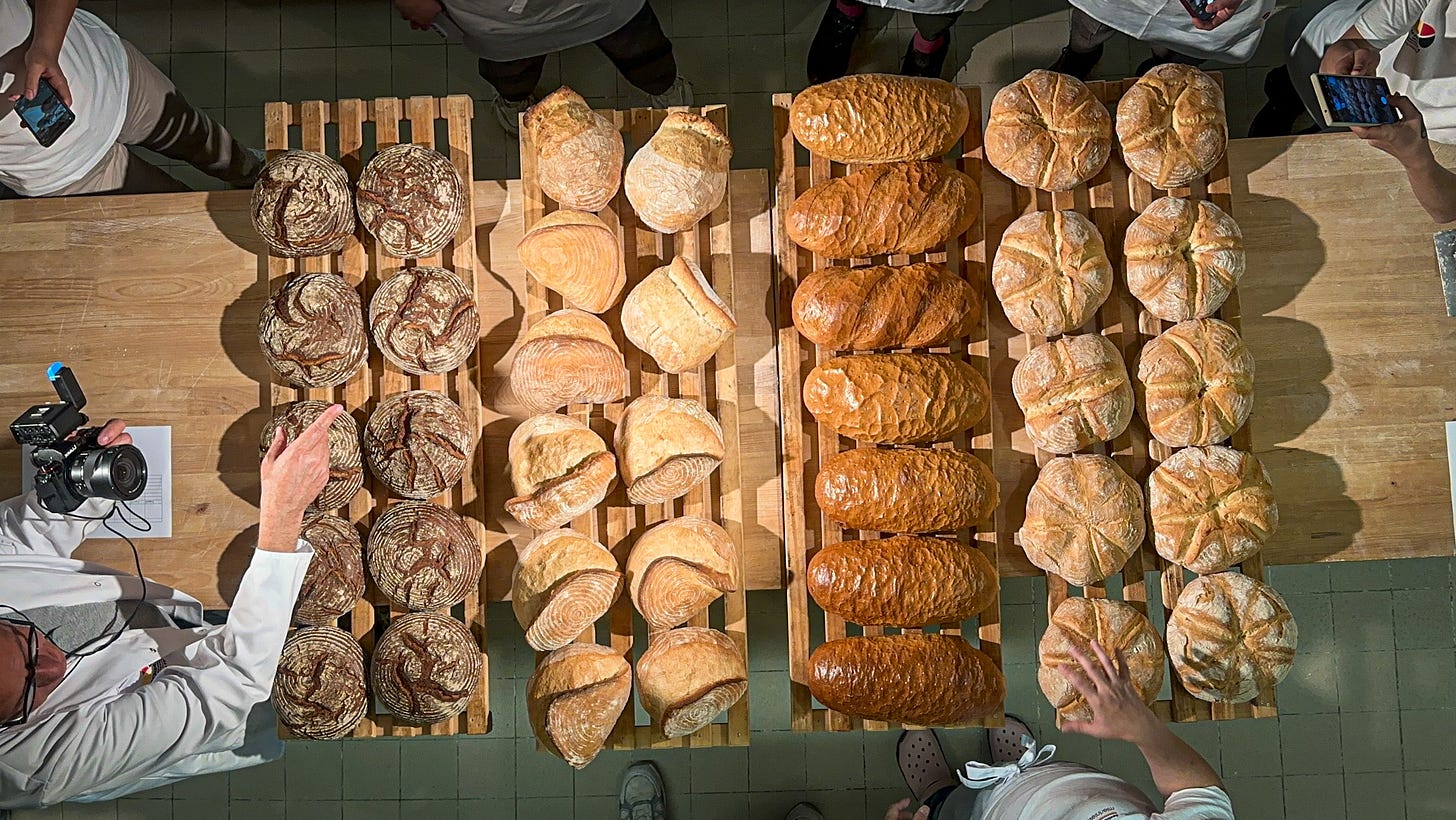

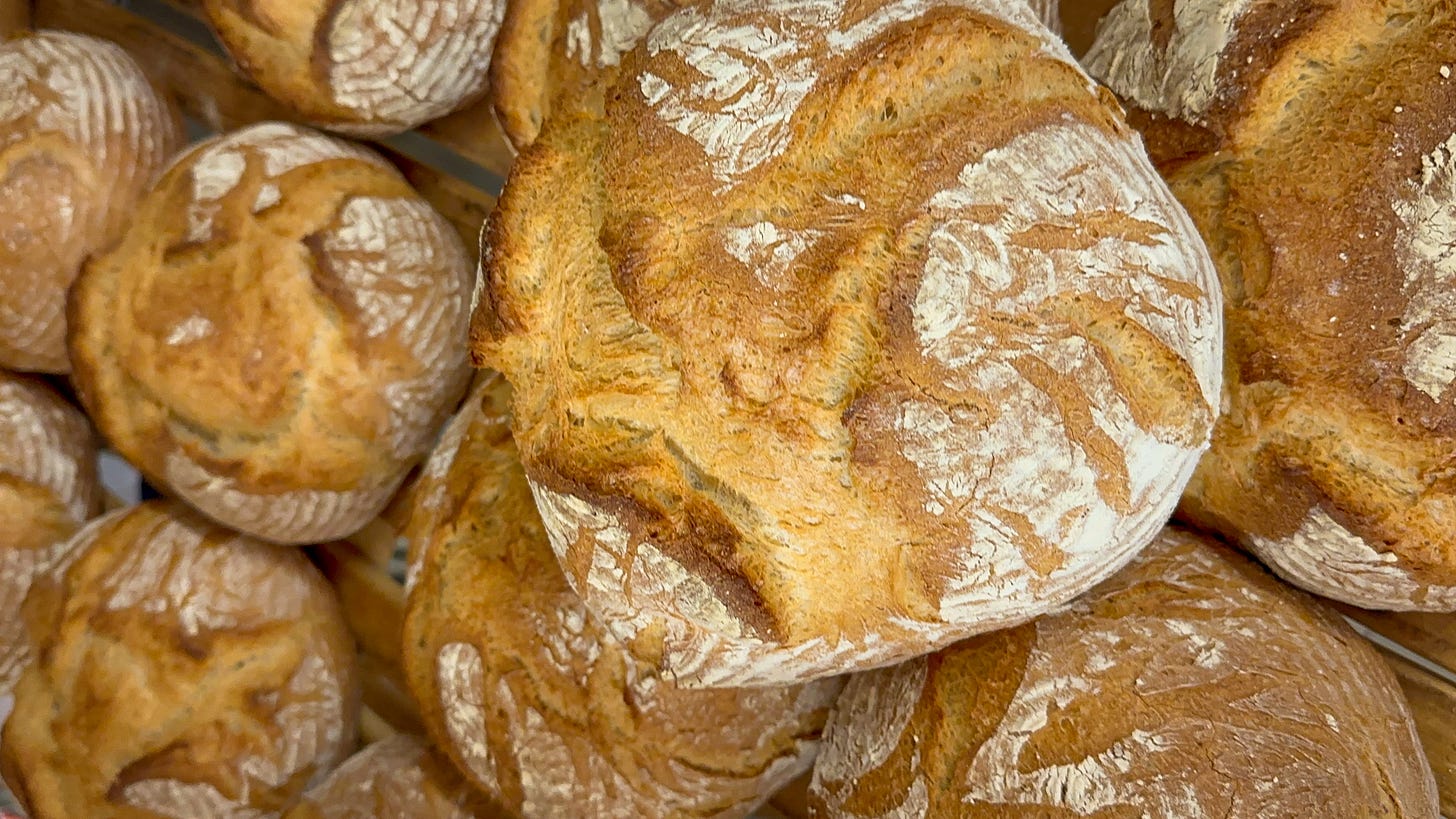
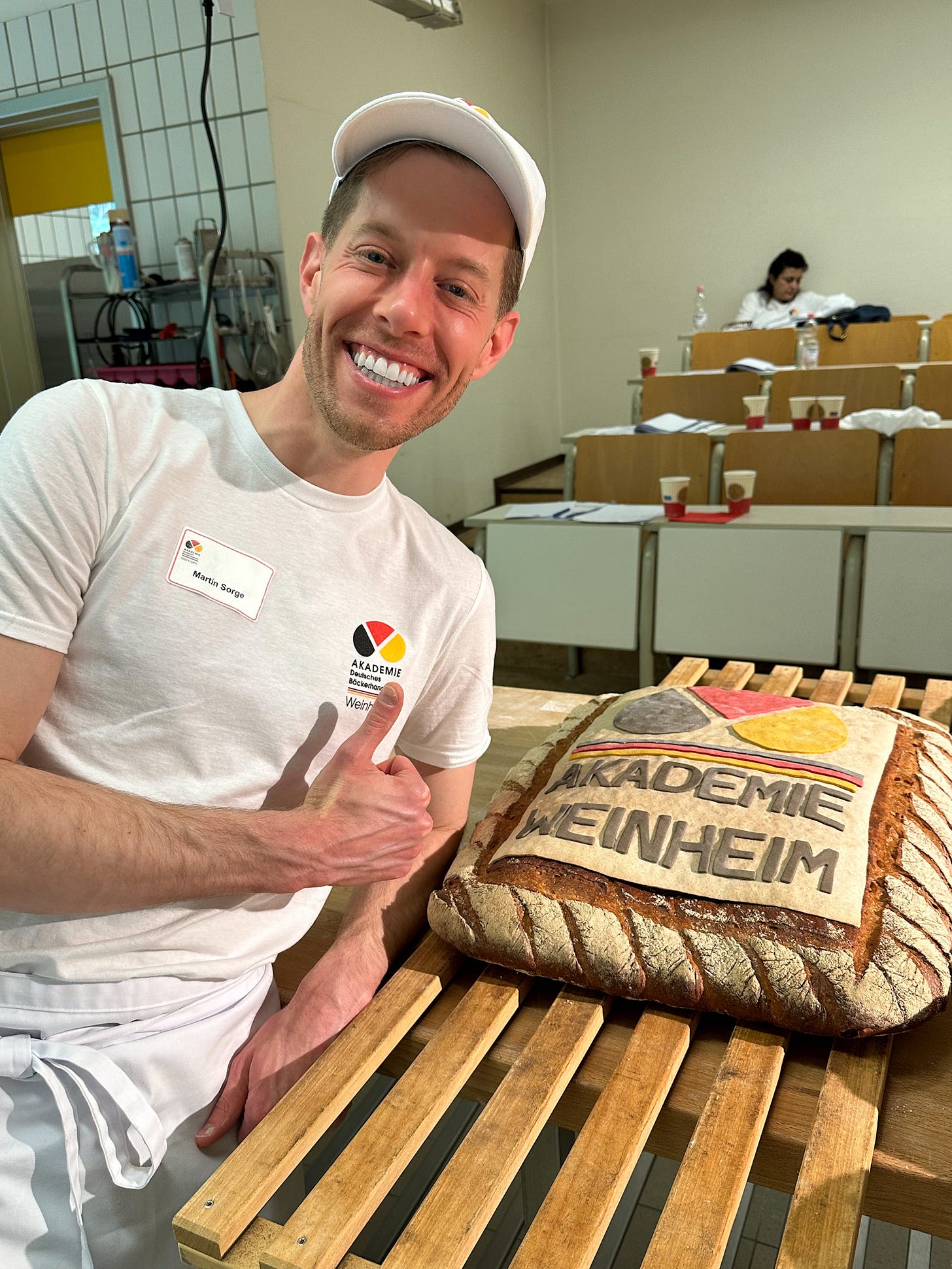
Germans love regulating. 😂 There's the Reinheitsgebot that regulated beer making too. 😉 I was born in Germany & living in the US now, but all the rules got to me in my younger years. They actually told me at some office once that my birth certificate expired and I need an updated version!!! 🤣🤦🏼♀️
Kandy made your carrot cake for my birthday, it is the very best carrot cake recipe 💖🎂🥂
KBP